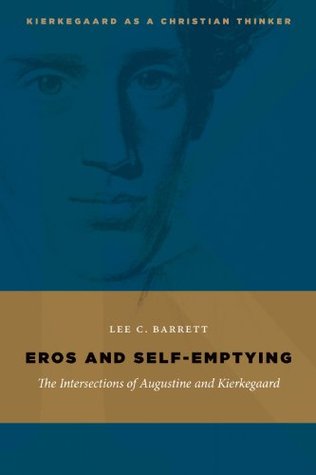Kindle Notes & Highlights
The so-called proofs function as part of a spiritual therapy, not as part of an academic dispute. Even
From the tradition of Plotinus, Augustine inherited this desire to love God directly and immediately, without the love of creatures coming in between to distract and confuse the soul. The degree to which this can be seen as an apt expression of Christian faith depends on what exactly Augustine thinks this love for God involves.
Augustine insists that God must transcend the material realm, for only such
Such a material God was too beleaguered, too mutable, and too circumscribed to satisfy the longing for ultimate fulfillment.
God is everywhere without being the sum total of all geographic points. God cannot break or deteriorate, for God is simple; in God all the virtues are one, and God’s attributes and very being are one.
These affirmations of God’s metaphysical perfections serve to reassure the reader that there is something in the universe that is immune to vacillation, anxiety, and disappointment.
The humble confession of ontological insufficiency is not a cry of despondency or an expression of envy of God’s sublime self-sufficiency.
Rather, for those who have not yet begun the journey toward God, this recognition is a powerful incentive to commence.
Augustine emphasizes that the existence of all things is due to God’s active creation out of nothing.
Augustine’s exposition of the doctrine of creation is designed to remind readers of their dependence, that they have been created ex nihilo rather than created out of preexistent matter, or chaos.
God is not the abstract perfection of classical philosophy, eternally passive and self-contained. God is indeed active, for God is constantly sustaining and loving God’s creatures. Accordingly,
Augustine’s spirituality is not a revulsion to life; it is not a yearning to return to nothingness or to dissolve all differentiation into a primal oneness.
Properly delighting in created goods via being grateful to their Creator is a way of sharing in God’s creative joy.17 As
Ostensibly, this speculative epistemology would seem to be a point at which Augustine diverges most sharply from Kierkegaard, who was
notoriously critical of seemingly cognitive approaches to God. Moreover, this association of God with all human knowing is clearly not peripheral to Augustine’s understanding of God.
However, scholars seem to be in agreement about one thing concerning Augustine’s epistemology: in some mysterious way the activity of God in the mind is a transcendental condition for intelligibility. The illuminating activity of the Word is presupposed by the operations of our minds. As Augustine sometimes phrases this theme, it is God’s “light” that confers intelligibility on all things.
These ruminations may make it seem that God is a postulate intended to solve an epistemological problem, or the ineffable content of a mystical experience transcending the polarity of subject and object.
In this epistemology God is not just the passive eternity of the ideal realm; rather, God is the active agent in all perception of truth.
To make this clear, Augustine identifies the light within us that illuminates the intelligible forms with Christ, the eternal wisdom of God. In
Praise should be offered to God not only for the world of physical objects, but also for the world of cognitive experience.
this rhetorical purpose is not so very different from Kierkegaard’s aim in Works of Love and many of the edifying and Christian discourses.
life can be imaged not only as a journey but also as a trial.
we must do so, for God has commanded it.
God’s displeasure, God’s judgment, and God’s wrath.
enable the reader to feel the utter importance of the journey to God and the enormity of the failure to pursue that journey.
Kierkegaard repeated this foregrounding of the theme that the individual’s life as a whole is being evaluated by God, and that God’s assessment is of ultimate importance.
For Augustine, the affirmation that “God is love” was the key to the entire project. (As we shall see, Kierkegaard focused on this same definition of God.)
According to Gunton, Augustine conceptualized the Trinity on the basis of an analogy to human self-awareness, and thereby reinforced the West’s unfortunate tendency to valorize solitary self-consciousness and self-reflection.
City of God, 19, 35, 36, 37, 42, 67, 74, 79, 85, 115, 117, 245, 329
Beauty, 73, 85, 165, 178, 248, 302-3, 318, 342, 350
Image of God, 99, 118-19, 131, 175, 303
Fear and Trembling, 140, 151, 152, 153, 187, 196, 274-77, 345
Literary strategy, 17-20, 95, 135, 148-49, 153, 154-55, 171, 181, 185-87, 196, 226, 282, 322
Manicheanism, 31, 73, 122, 141, 165, 168, 188, 189, 208, 212
Neo-Platonism, 6-7, 78, 115, 118, 143, 146, 157, 162, 165, 173
Plato/Platonism, 5, 8, 10, 46, 61, 62, 83, 107, 109, 110, 111, 121, 123, 164, 169 Plotinus, 164, 170, 198
Psychology, 226-28, 235, 237
Resignation, 140-41, 146, 147, 150-51, 272, 275-77 Restlessness, 70-72, 85-86, 90, 110, 120, 126, 127, 156-57
Risk, 146-48
Schleiermacher, Friedrich, 38, 41-42, 46-49, 51, 57, 221, 223, 262, 295
Stages of life, 133-50, 154-55
Suffering, 141, 152, 187-88, 272, 305, 308, 319, 320, 330-31, 345-47
Telos/teleology, 22, 65, 71, 81, 85, 96, 109, 113, 117, 121, 123, 124, 130, 140, 143, 144, 153, 248, 272, 293, 303, 323, 340
Tertullian, 214
Theodicy, 187-89, 243


